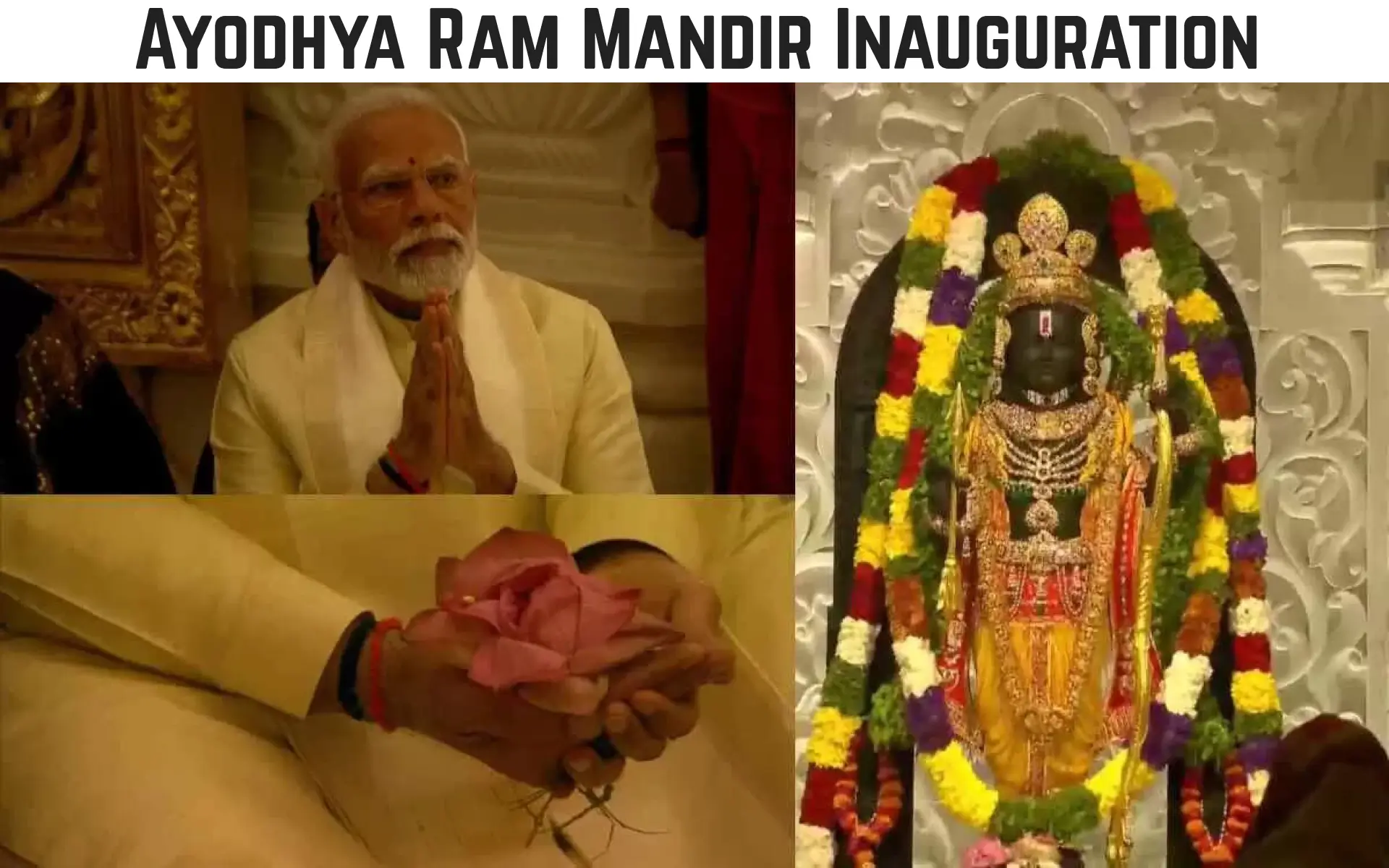
The consecration of the Ayodhya Ram Mandir in India marks a significant milestone in the country’s history. This grand temple, dedicated to the Hindu god Ram, is being constructed in Ayodhya, a city with deep religious significance. The temple’s inauguration, set to take place under the leadership of Prime Minister Narendra Modi, signifies not only a momentous religious event but also holds political implications as the nation gears up for upcoming elections.
The roots of the controversy surrounding the Ram temple lie in the city of Ayodhya, where many Hindus believe that Lord Ram was born. The disputed site in Ayodhya was home to the Babri Masjid, a mosque built in 1528 during the reign of Mughal emperor Babur. However, on December 6, 1992, the mosque was demolished by a mob of Hindu nationalists, sparking nationwide riots and deepening religious fault lines in Indian society.
After years of legal battles, the Supreme Court of India ruled in November 2019 that the disputed land should be handed over to a trust responsible for the construction of a Hindu temple. The court also allocated a separate piece of land in Dhannipur village for the construction of a mosque, intended to replace the Babri Masjid. While the ruling was celebrated by some as a victory for the Hindu community, others criticized it for compromising India’s secular and democratic principles.
The construction of the Ram temple is still underway, but the consecration ceremony marks a significant step in its completion. The temple is being built near the banks of the Sarayu River, a sacred site mentioned in ancient Hindu scriptures. Designed in the Nagara architectural style, the temple will feature tall steeples, a stone platform, and intricate carvings.
READ ALSO: Exploring the World’s Largest Deep-Sea Coral Reef Habitat
The Pran Pratishtha ceremony, which translates to the “establishment of life force,” is a pivotal moment in the consecration of the Ram temple. Prime Minister Narendra Modi, along with priests and dignitaries, will participate in the ceremony, which involves various rituals and the placement of idols within the temple’s sanctum sanctorum. The ceremony is expected to last approximately half an hour and will be followed by the opening of the temple to devotees and the public.
For millions of Hindus, the construction of the Ram temple in Ayodhya is a momentous occasion. Lord Ram is revered as a symbol of righteousness, and the temple’s establishment at his believed birthplace holds immense religious significance. The completion of the temple fulfills a long-standing promise made by the Bharatiya Janata Party (BJP), which has gained political momentum through its support for the temple’s construction.
The consecration of the Ram temple holds political implications, especially as India gears up for national elections in 2024. The BJP, under the leadership of Prime Minister Narendra Modi, has long championed the construction of the temple as one of its foundational promises. The temple’s inauguration serves as a platform for the BJP to rally its Hindu-majority base and strengthen its position for the upcoming elections.
The construction of the Ram temple is not only significant from a religious and political standpoint but also holds economic implications. Ayodhya is poised to become a major pilgrimage and tourism destination, attracting devotees and tourists from across the globe. The city’s infrastructure is being revamped, and new hotels and facilities are being developed to accommodate the expected influx of visitors.
While the Ram temple’s construction has been celebrated by many, it has also faced criticism and controversy. Some argue that the demolition of the Babri Masjid and the subsequent construction of the temple represent a disregard for India’s secular and democratic principles. Others express concerns that the ruling and the temple’s inauguration may embolden right-wing Hindu factions to target other mosques in the country.
The construction of the Ayodhya Ram Mandir and its inauguration symbolize the rise of Hindu nationalism in India. The temple’s completion signifies the culmination of a long-standing Hindu nationalist movement, with the Rashtriya Swayamsevak Sangh (RSS) and the BJP at its forefront. The temple’s establishment solidifies the RSS’s vision of a Hindu India and further strengthens the BJP’s political narrative.
Despite the controversy and division surrounding the Ram temple, it is important to highlight instances of harmony and coexistence between different religious communities in Ayodhya and throughout India. The ruling to allocate land for both the temple and mosque aims to foster inclusivity and preserve the country’s diverse fabric.
The consecration of the Ayodhya Ram Mandir is a historic moment in India’s history, combining religious, political, and economic significance. The construction of the temple, amid controversy and criticism, marks the fulfillment of a long-standing promise and the rise of Hindu nationalism. As the temple opens its doors to devotees and visitors, it remains to be seen how its presence will shape the sociopolitical landscape of India and foster unity amidst diversity.
